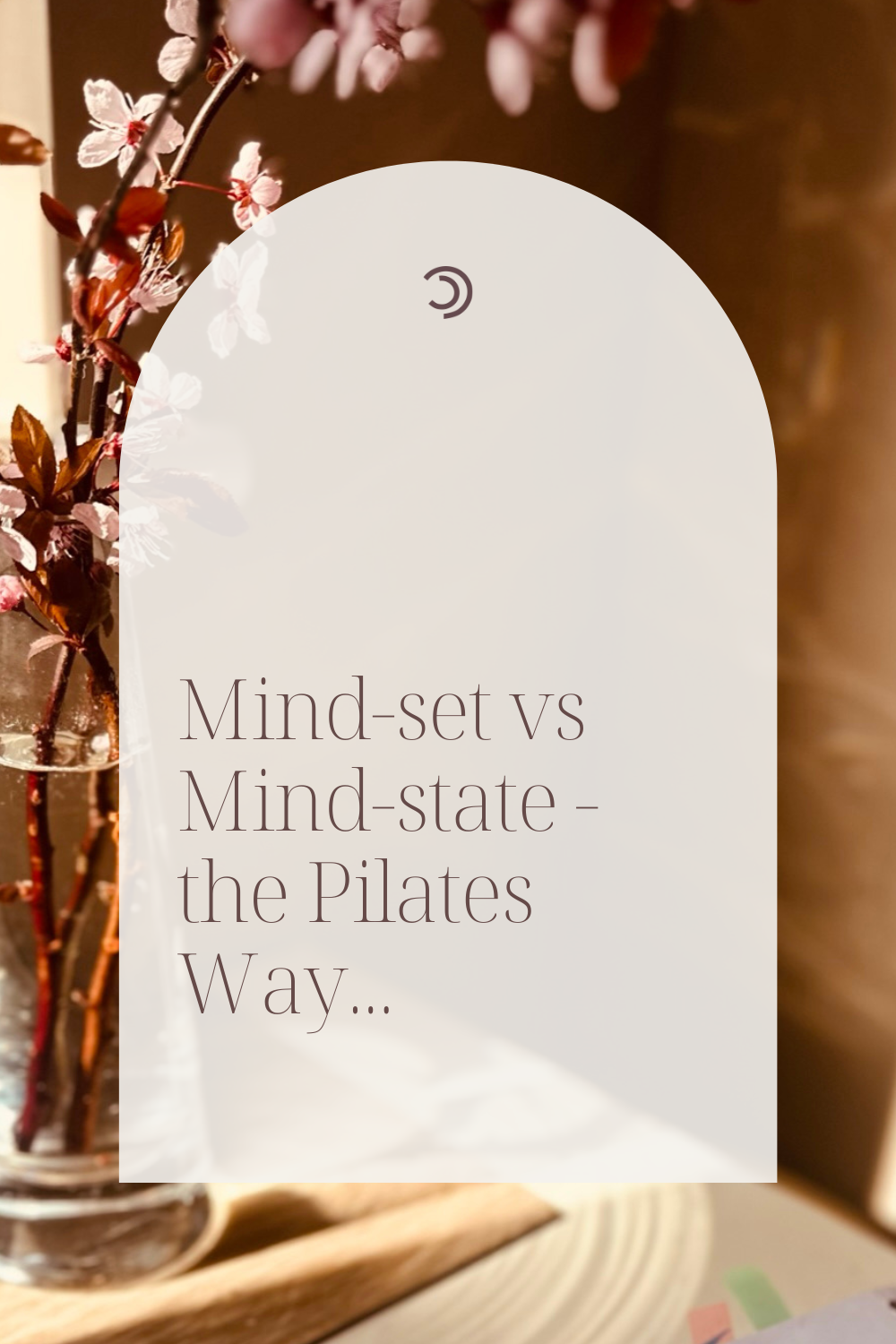Mind-set vs Mind-state - the Pilates way
Cultivating a positive mind-set is one benefit of the Pilates lifestyle.
The practice of Pilates, for many, is a series of mat-based exercises that strengthen and tone the body (particularly the core muscles) whilst building flexibility and mobility. They are movement strategies that Joseph Pilates developed and originally called ‘Contrology’. The repertoire encompasses a series of 34 mat moves, that have been mirrored, adapted, and embraced by millions of followers.
Joseph Pilates was more than his exercises, however. He was an early advocate of the ‘Mind, Body and Spirit’ connection, and lifestyle choices that still resonate and are relevant today. In his work’ Return to Life’ he commented on lifestyle choices that included diet, exercising and spending time outside, taking cold showers (yes, he was ahead of Wim Hof), and dry brushing the skin. He also advocated a mindset that embraced movement in all forms and the influence that had on the overall mind-body state.
The influence of mind setting and making healthy choices is pivotal in maintaining physical and mental health. But for me, Pilates goes deeper than that because of its influence on the mind ‘state’, and in turn, anxiety, and stress that are so prevalent in today’s society.
So, what’s the difference between Mindset and Mindstate, and how do they influence our overall mental health?
Mindset can be described, in part, as a set of attitudes, beliefs, and assumptions about how individuals perceive and interpret the world around them. It is a mental framework that influences how people approach challenges, handle setbacks, and make decisions.
It’s also about who we choose to be influencers in our lives, where our focus is, and what goals we might be setting for ourselves. It’s also about an ability to let go of negative influencers and face change (note – you might want to check your social media feeds and notice what ‘messaging’ you’re allowing into your own life).
Adopting a ‘growth mindset’ (versus a ‘fixed mindset’) will help you to grow yourself, your skills, and your strengths, whilst also helping you embrace new challenges and opportunities. Within a Pilates community, we’re all growing – learning new things, new challenges, and helping each other on the way. Any new challenges are great for maintaining a positive outlook and improving mental health overall.
The beauty of the Pilates practice goes a little deeper, however, in its ability to positively affect our mind-state. Mind-state refers to an individual’s current mental or emotional state at any given specific moment. It encompasses thoughts, emotions, and level of focus or concentration, and it’s part of the overall focus of our Psychological fitness.
When we are focused on our practice, we can shut out all of the external noise, and switch off the busiest parts of the brain (which are certainly useful in many situations; we just don’t need them firing all of the time).
The focus on our own bodies, and in particular our breath, will calm our nervous system and help access our parasympathetic state of mind, which signals calm and a sense of safety to our nervous system.
The more we practice this, the more our nervous system can ‘dampen down’ and stay calm and we can reduce stress levels, overcome anxiety, and even reduce pain. You don’t need to be an experienced mover to get started. You just need to schedule some time for yourself and get yourself to the mat.
If you want to improve both your physical and mental health and improve both your mindset and mind-state, Pilates might be just what you need.
We have our Beginner’s Series here for you when you’re ready to get started: https://www.positivepilatessolihull.co.uk/beginners-series

